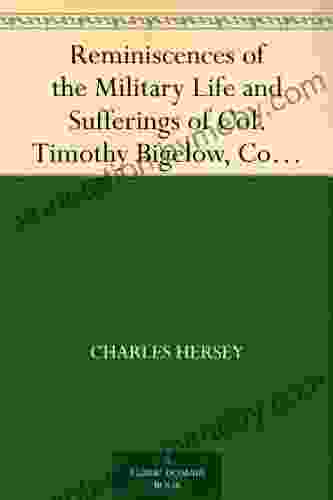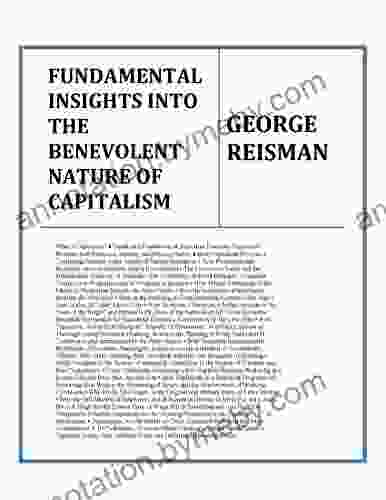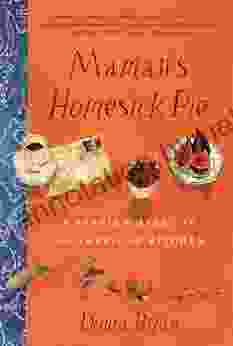The Unwavering Spirit of Lilu Ganesha Devika Joglekar: A Beacon of Progress and Inspiration


5 out of 5
| Language | : | English |
| File size | : | 7894 KB |
| Print length | : | 49 pages |
| Lending | : | Enabled |
In the annals of India's history, the name Lilu Ganesha Devika Joglekar stands as a radiant beacon of progress and inspiration. As a pioneering feminist and social activist, she relentlessly fought for women's rights, social welfare, and interfaith harmony, leaving an indelible mark on the nation's social and political landscape. Her unwavering advocacy for gender equality, education, and social justice continue to resonate today, inspiring generations to strive for a more just and equitable society.
Early Life and Education
Lilu Ganesha Devika Joglekar was born on March 10, 1888, in the coastal town of Ratnagiri, Maharashtra. From an early age, she displayed a keen intellect and a deep concern for the well-being of others. Her father, Ganesh Hari Joglekar, was a prominent lawyer and social reformer who instilled in her a strong sense of social responsibility. Her mother, Krishnabai Joglekar, was a compassionate and supportive figure who encouraged her daughter's pursuit of knowledge and activism.
Lilu received her early education at the local mission school. However, due to limited opportunities for higher education for girls at the time, she had to travel to Mumbai (then Bombay) to continue her studies. She enrolled at the Wilson College, where she excelled in her studies and became actively involved in the student movement.
Women's Suffrage and Political Activism
Lilu's passion for social justice was ignited during her college years. She joined the Indian National Congress, the country's primary political organization, and became an active participant in the struggle for Indian independence. She recognized the importance of women's participation in the political process and became a vocal advocate for women's suffrage.
In 1928, Lilu and a group of like-minded women founded the All India Women's Conference (AIWC),an organization dedicated to promoting women's rights and welfare. She served as the AIWC's president from 1930 to 1931 and played a pivotal role in organizing the first All India Women's Conference in Delhi in 1928, which brought together women from all over the country to discuss issues related to women's rights, education, and health.
Lilu's efforts for women's suffrage bore fruit in 1931 when the British colonial government extended the right to vote to women in India. She continued to work tirelessly for the advancement of women's political and social rights throughout her life.
Social Welfare and Education
Beyond her involvement in the women's suffrage movement, Lilu was also deeply committed to social welfare and education. She believed that the empowerment of women and the well-being of society were inextricably linked.
In 1935, Lilu established the Seva Sadan Society in Mumbai, an organization dedicated to providing education, healthcare, and social support to women and children. Through Seva Sadan, she opened schools, vocational training centers, and healthcare clinics to cater to the needs of marginalized communities. She also established a home for widows and a home for orphaned children.
Lilu's unwavering belief in the power of education extended to girls and women. She recognized the importance of access to education for girls as a key to their empowerment and social progress. She campaigned for the opening of girls' schools and colleges and established scholarship programs to support the education of underprivileged girls.
Interfaith Harmony and Communal Unity
At a time when communal tensions often divided society, Lilu stood as a staunch advocate for interfaith harmony and communal unity. She believed that religious diversity was a strength of Indian society and worked tirelessly to promote mutual respect and understanding among different religious communities.
In 1947, India gained independence from British rule, but it also witnessed the tragic partition of the country into India and Pakistan. Amidst the widespread communal violence that ensued, Lilu tirelessly worked to protect people from all religions and to promote peace and reconciliation.
Lilu played a key role in establishing the All India Women's Interfaith Association, an organization dedicated to promoting interfaith dialogue and understanding. She also worked closely with the Mahatma Gandhi National Memorial Fund to support programs that promoted communal harmony and social integration.
Legacy and Recognition
Lilu Ganesha Devika Joglekar's life and work left an enduring legacy that continues to inspire generations. Her tireless efforts for women's rights, social welfare, and interfaith harmony have had a profound impact on the shaping of modern India.
In recognition of her remarkable contributions, Lilu received numerous awards and accolades. In 1954, the Government of India awarded her the Padma Bhushan, the third highest civilian award in the
5 out of 5
| Language | : | English |
| File size | : | 7894 KB |
| Print length | : | 49 pages |
| Lending | : | Enabled |
Do you want to contribute by writing guest posts on this blog?
Please contact us and send us a resume of previous articles that you have written.
 Book
Book Novel
Novel Page
Page Chapter
Chapter Text
Text Story
Story Genre
Genre Reader
Reader Library
Library Paperback
Paperback E-book
E-book Magazine
Magazine Newspaper
Newspaper Paragraph
Paragraph Sentence
Sentence Bookmark
Bookmark Shelf
Shelf Glossary
Glossary Bibliography
Bibliography Foreword
Foreword Preface
Preface Synopsis
Synopsis Annotation
Annotation Footnote
Footnote Manuscript
Manuscript Scroll
Scroll Codex
Codex Tome
Tome Bestseller
Bestseller Classics
Classics Library card
Library card Narrative
Narrative Biography
Biography Autobiography
Autobiography Memoir
Memoir Reference
Reference Encyclopedia
Encyclopedia Phil Jarratt
Phil Jarratt Declan Lyons
Declan Lyons Don Moore
Don Moore Diane Esguerra
Diane Esguerra Don Keith
Don Keith Donald H Wolfe
Donald H Wolfe Diana Delrusso
Diana Delrusso Dina Anastasio
Dina Anastasio Terry Masear
Terry Masear Debra Nelson Holm
Debra Nelson Holm Kira Breed Wrisley
Kira Breed Wrisley Deborah Spungen
Deborah Spungen Dennis Georgatos
Dennis Georgatos Dina Rudick
Dina Rudick Diet Eman
Diet Eman Dinah Dye
Dinah Dye Dessy Tsolova
Dessy Tsolova Desmond Seward
Desmond Seward Karishma Mhapadi
Karishma Mhapadi Linda Bartash Dawley
Linda Bartash Dawley
Light bulbAdvertise smarter! Our strategic ad space ensures maximum exposure. Reserve your spot today!

 Yukio MishimaAn Adventure Through the 1970s: A Nostalgic Journey into a Decade That Shaped...
Yukio MishimaAn Adventure Through the 1970s: A Nostalgic Journey into a Decade That Shaped...
 Anthony BurgessWorld War Living Through: A Captivating Journey Through History's Greatest...
Anthony BurgessWorld War Living Through: A Captivating Journey Through History's Greatest... Benjamin StoneFollow ·18.3k
Benjamin StoneFollow ·18.3k Ernesto SabatoFollow ·19.6k
Ernesto SabatoFollow ·19.6k William PowellFollow ·14.6k
William PowellFollow ·14.6k Forrest ReedFollow ·13k
Forrest ReedFollow ·13k Ryūnosuke AkutagawaFollow ·13k
Ryūnosuke AkutagawaFollow ·13k Yasunari KawabataFollow ·3.3k
Yasunari KawabataFollow ·3.3k Yukio MishimaFollow ·6.4k
Yukio MishimaFollow ·6.4k Thomas HardyFollow ·2.7k
Thomas HardyFollow ·2.7k
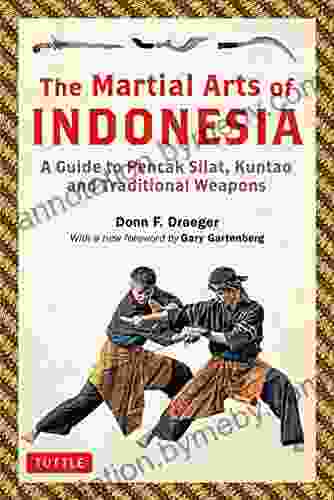
 Cruz Simmons
Cruz SimmonsGuide To Pencak Silat Kuntao And Traditional Weapons:...
Immerse yourself in the captivating world of...

 Dalton Foster
Dalton FosterUnlock Your Financial Freedom: Dive into the ABCs of Real...
Are you ready to embark on a...

 George Orwell
George OrwellThe Advanced Guide to Real Estate Investing: Your...
Are you ready to embark on...
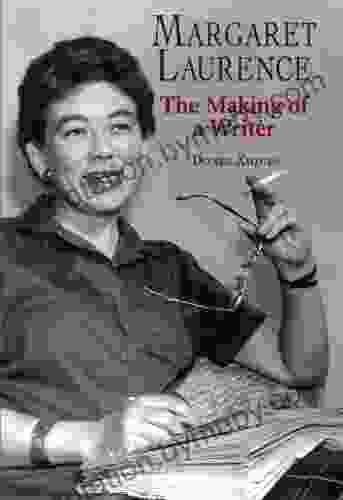
 Will Ward
Will WardMargaret Laurence: The Making of a Writer
Margaret Laurence (1926-1987) was one of...

 Jorge Amado
Jorge AmadoThe ABCs of Property Management: A Comprehensive Guide...
Owning and managing rental...
5 out of 5
| Language | : | English |
| File size | : | 7894 KB |
| Print length | : | 49 pages |
| Lending | : | Enabled |


